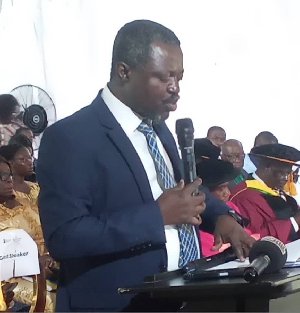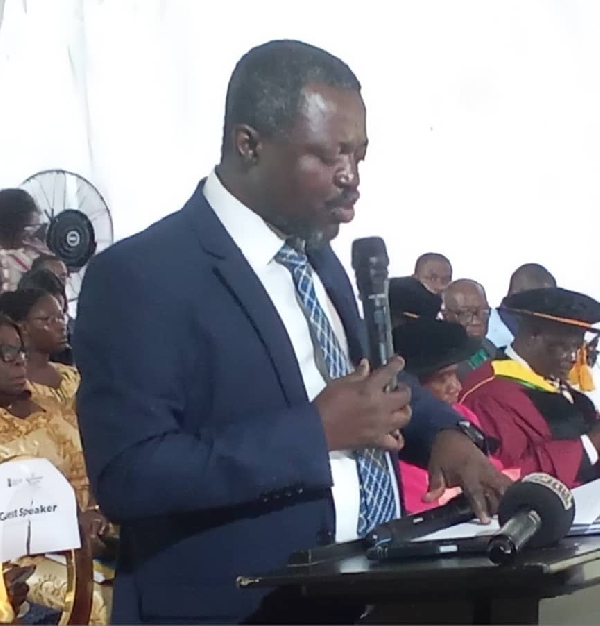 Prof Adu-Manu speaking at the WESCO graduation program
Prof Adu-Manu speaking at the WESCO graduation program
Wesley College of Education (WESCO), has awarded Bachelor of Education degrees to 450 graduating students at its 16th Congregation Ceremony.
The event also served as a platform to unveil a forward-thinking initiative to integrate artificial intelligence (AI) into teacher education programs across Ghana.
Speaking on the theme “Transforming Teacher Education with AI: Advancing the WESCO Agenda for Excellence,” Associate Prof Kofi Sarpong Adu-Manu of the University of Ghana’s Department of Computer Science challenged Ghana’s teacher education system to redefine the future, not preserve the past, envisioning educators as learning architects, AI‑enhanced mentors, and digital ethicists.
“AI will not change Ghana; you will,” Prof Adu-Manu told the graduating class, urging them to use their knowledge, vision, and ethical considerations wisely.
Prof Adu-Manu emphasized that AI should be used to amplify the capabilities of teachers, not to replace them. He advocated for AI fluency, digital ethics, and equity-focused design to be incorporated into all teacher training programs.
He proposed an ethics in AI-Driven Education module at the WESCO graduating program and suggested collaborative research with the University of Ghana to develop culturally relevant AI tools, such as lesson-planning chatbots and adaptive feedback systems for trainee teachers.
Prof Adu-Manu also recommended; Updating national teacher standards to include data literacy, digital well-being, and ethical AI usage.
Establishing AI-powered teaching labs in every College of Education, forming a Digital Equity Task Force to address access disparities between urban and rural areas.
He also suggested Creating a Pan-African AI Teacher Fellowship under the AU and ECOWAS to scale context-aware pedagogy across Africa.
WESCO Principal Dr Kennedy Ameyaw Baah highlighted the college’s commitment to becoming a world-class center of excellence in pre-tertiary teacher education.
He cited achievements such as the growth in faculty qualifications (12 PhDs, with 30 others pursuing doctoral studies), global recognition through presentations at international forums, and research grants, including a Commonwealth of Learning (COL) STEM Project focused on AI in Education and an LRA Barr Mosenthal Research Award.
He also highlighted the college’s focus on inclusion, with the admission of 23 visually impaired students this year.


